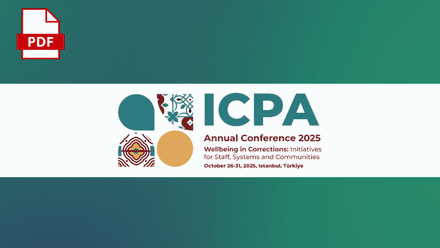Advancing Corrections Journal - Edition #19 - Excellence in Juvenile Justice Policy and Practice | Article 1 (ACJ19-A001)
Abstract
This paper discusses how current approaches to youth justice service delivery have largely failed to produce measurable success for both children and young people and the wider community. We draw on findings from a long-standing program of research in an Australian jurisdiction which has raised important social and political questions about the extent to which any system that relies largely on the use of punitive, risk, and deficits-based service models can only serve to criminalize childhood adversity. Local data are used to provide the evidence base from which more trauma-informed justice system practices can be identified and implemented that protect the rights of children and young people while also protecting the safety of the community.
This paper discusses how current approaches to youth justice service delivery have largely failed to produce measurable success for both children and young people and the wider community. We draw on findings from a long-standing program of research in an Australian jurisdiction which has raised important social and political questions about the extent to which any system that relies largely on the use of punitive, risk, and deficits-based service models can only serve to criminalize childhood adversity. Local data are used to provide the evidence base from which more trauma-informed justice system practices can be identified and implemented that protect the rights of children and young people while also protecting the safety of the community.
Please log in to download the full article. Access is available exclusively to ICPA Full, Staff, and Professional Members.



